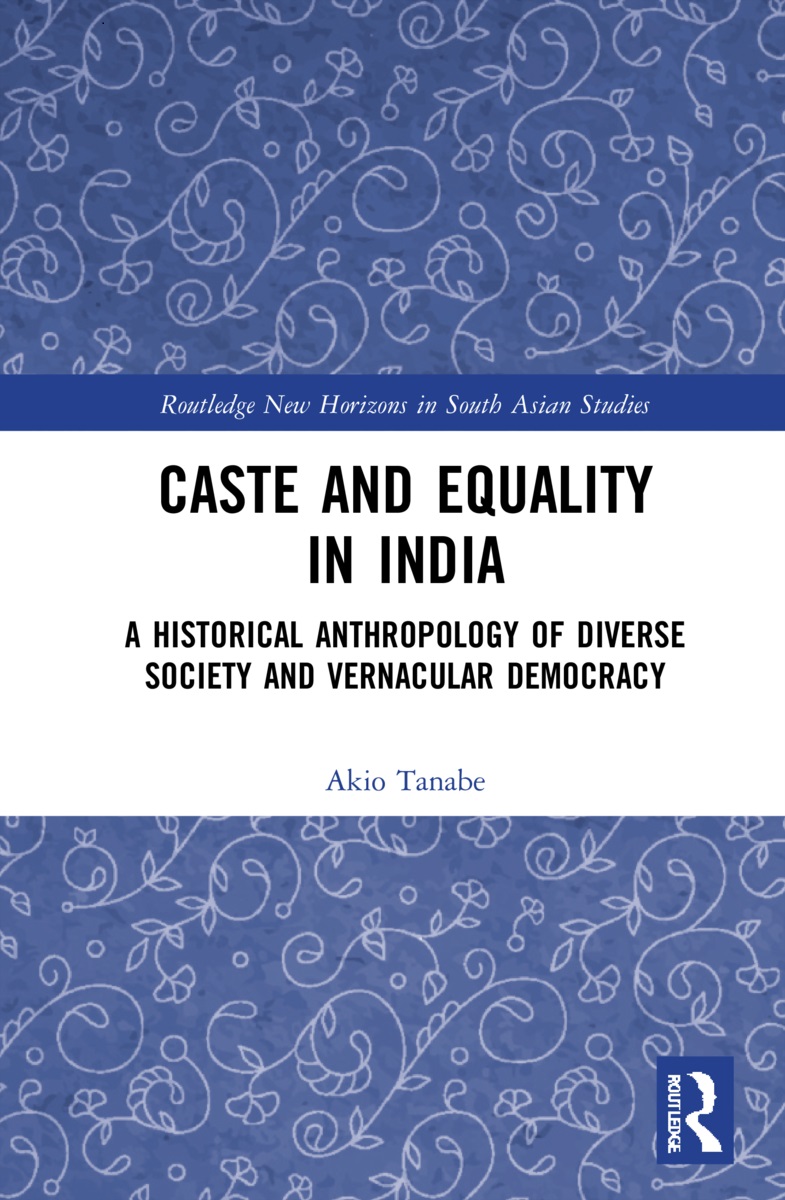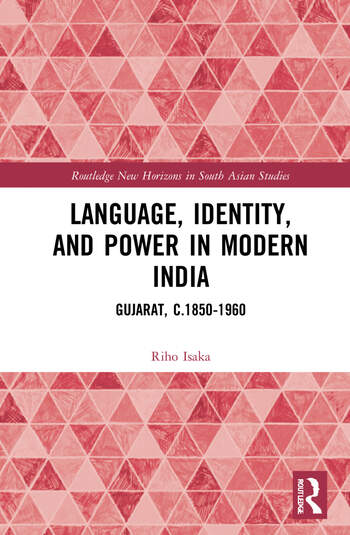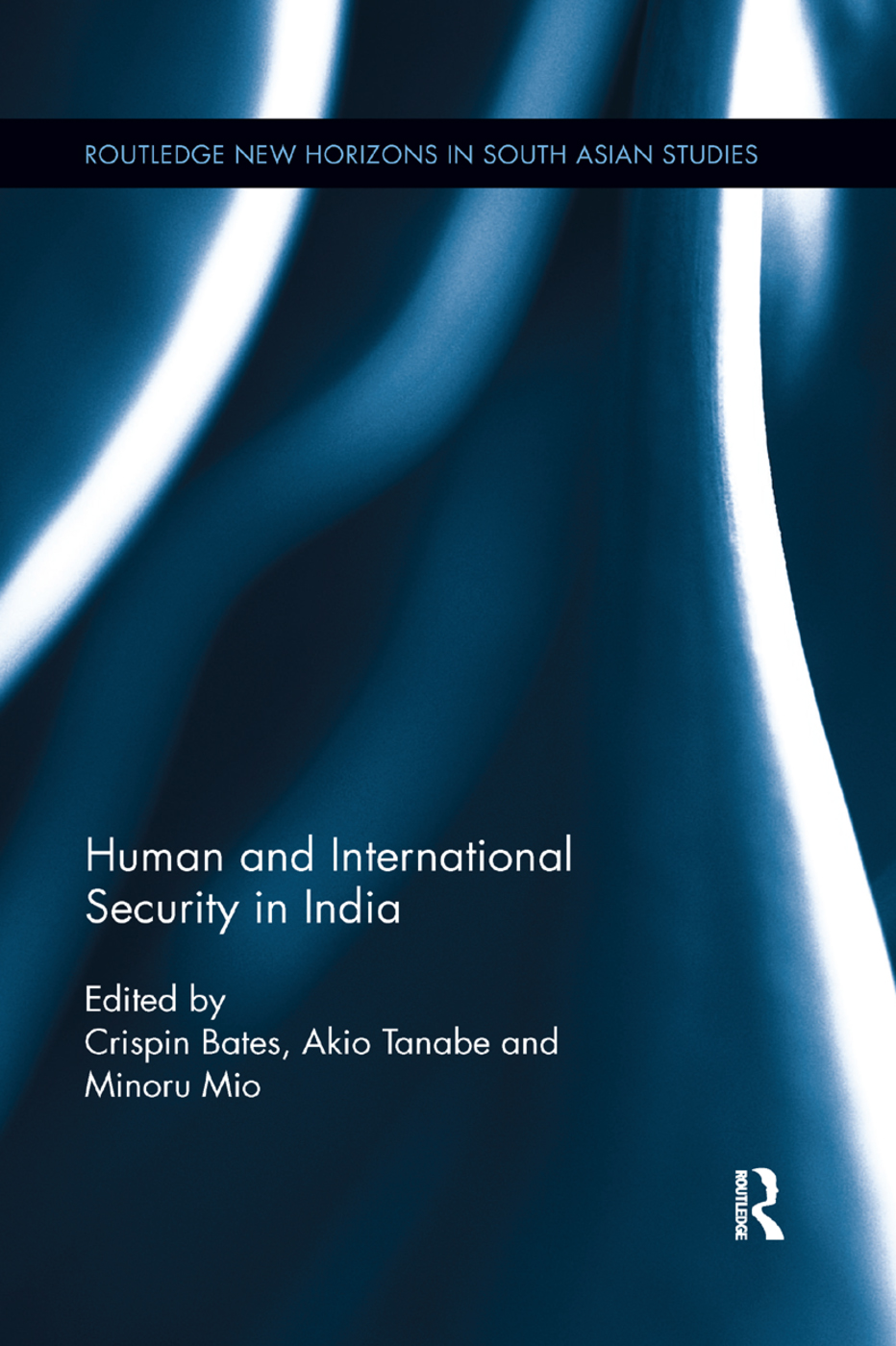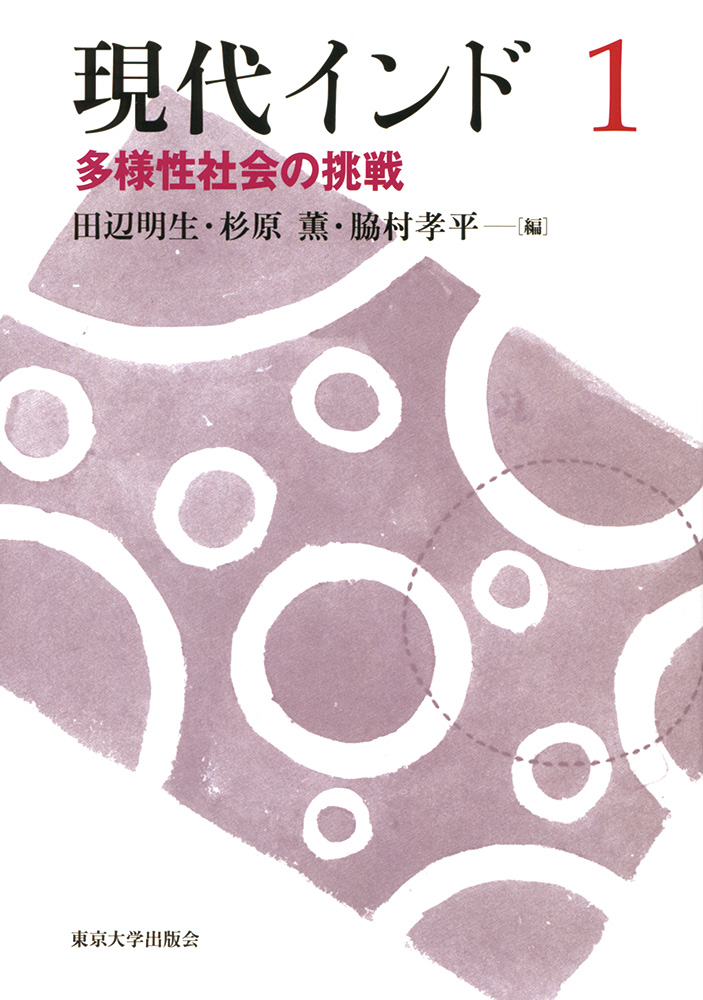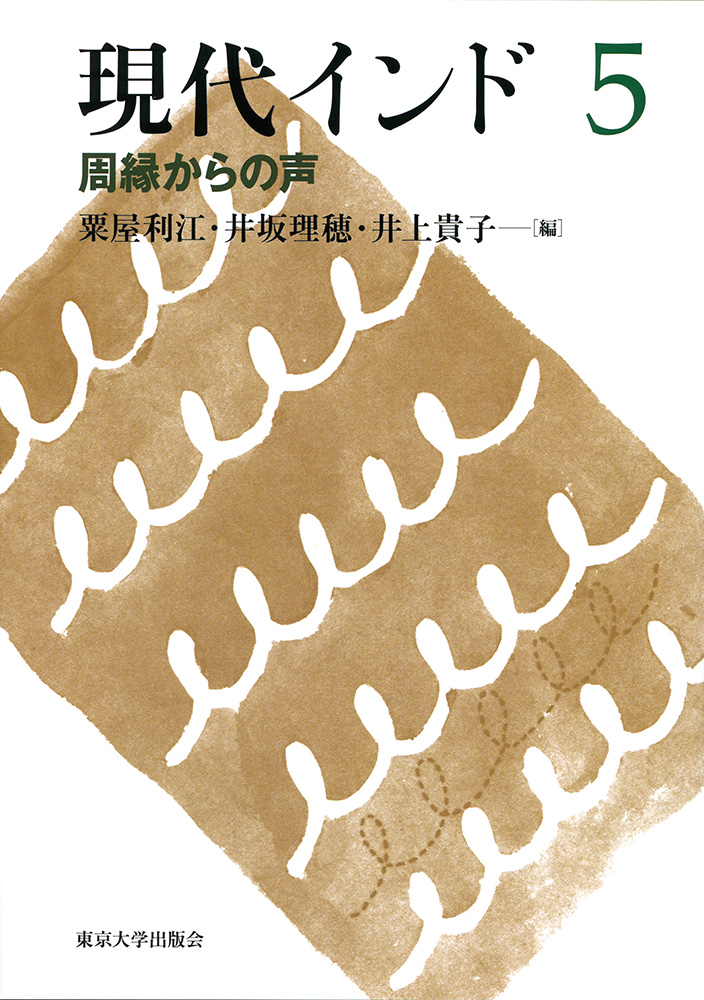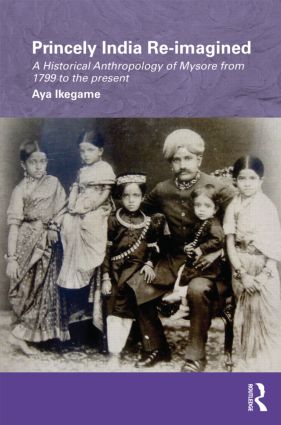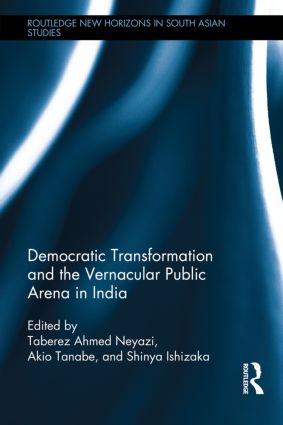
Title
New Horizons in South Asian Studies Democratic Transformation and the Vernacular Public Arena in India
Size
222 pages, hardcover
Language
English
Released
2014
ISBN
9780415738675
Published by
Routledge
Book Info
See Book Availability at Library
Democratic Transformation and the Vernacular Public Arena in India
Japanese Page
This book is the first volume in the New Horizons in South Asian Studies series published by Routledge, London. This multi-disciplinary series was launched in 2014 to offer a Japanese/East Asian perspective on South Asian Studies—until now dominated by Western and Indian scholars—through translations of outstanding works originally published in Japanese or papers based on international collaborative research conducted under the leadership of Japanese scholars and institutions. This series was launched as part of the Contemporary India Area Studies program of the National Institute for the Humanities.
In this volume, we aim to understand the process of the deepening of democracy in India by employing the new analytical framework of the “vernacular public arena,” where negotiations, dialogues, debates, and contestations occur among “vernacular publics.” For some decades after independence, English-speaking elites dominated the public sphere in postcolonial India. Discussions ensued on development, modernization, diplomacy, and culture, which were somewhat removed from the lives of ordinary people. However, since the structural change in Indian society that began in the 1990s—the result of the liberalization of the economy, devolution of power, and decentralization of the government—an unprecedented, democratic transformation has been taking place. In addition to urban, Hindu, high caste, and male, there are now diverse social groups including dalits, adivasis, and Other Backward Classes; minorities; women; individuals from rural areas, towns, and cities; the poor; and the new middle classes—the vernacular publics—who participate in new ways in India’s public life.
By “vernacular,” we mean the discourse, style, and place of the lifeworld of common people, in contrast to that of the official sphere of the national elite. The huge gap between elite national politics and subaltern everyday life is giving way to a new era wherein the workings of governance and market have penetrated everyday life at the grassroots. Nevertheless, the diffusion of institutions and activities of governance and the market have been concomitant with the subjectification of the diversity of people who have begun to assert their rightful place in the public arena for democratic politics and the developing economy. Contributors demonstrate that the participation of vernacular publics has broadened Indian democracy. With the term vernacular public arena, we problematize the connection and mediation between the languages and lifeworlds of the vernacular with the discourses and activities in the public arena, and the resulting vitalization of the public arena in which diverse vernacular social groups participate.
The new vernacular public arena in contemporary India cannot be grasped through frameworks such as “popularization” or “populism.” Usually, the popularization process presumes a rise of the “popular mass,” whose life forms have become homogenized through mass production and mass consumption. However, in the case of India, the new vernacular publics are colored by various differences based on the heterogeneity of religion, caste, class, gender, and so on. There is also rigorous criticism of the persisting discrimination and inequality in Indian society. This has caused the emergence of unexpected coalitions and alliances across diverse castes, classes, and religious groups according to the issues involved.
Is it possible to create a public arena that guarantees both equality and diversity? This original volume furthers our understanding of the unfolding political dynamism and complex reshuffling and reassembling in Indian society and politics. This book is relevant to academics, students, and publics interested in India and South Asia, and those seeking a new framework in political science, sociology, anthropology, and media studies.
(Written by TANABE Akio, Professor, Graduate School of Arts and Sciences / 2018)
Table of Contents
2. Politics of Relations and the Emergence of Vernacular Public Arena: Global Networks of Development and Livelihood in Odisha, Akio Tanabe & Yumiko Tokita-Tanabe
3. Social Politics: Youth Vernacular Action in the Indian Himalayas, Craig Jeffrey & Jane Dyson
4. Empowering the Vernacular Publics: Civil Society and Democratic Participation in Rajasthan, Sarbeswar Sahoo
5. News Media and Political Participation: Re-evaluating Democratic Deepening in India, Taberez Ahmed Neyazi
6. Jan Andolans and Alternate Politics in India: Symbiotic Interactions, Vernacular Publics and News Media in Jan Lokpal Andolan, Anup Kumar
7. Ways of Democracy: Making Politics Work for the Urban Poor, Bishnu N. Mohapatra
8. Re-evaluating the Chipko (Forest Protection) Movement: The Emergence of Vernacular Publics in the Uttarakhand, Shinya Ishizaka
9. Grassroots and Vernacular Articulations: Politics and Popular Democracy in Uttar Pradesh Villages, Badri Narayan
10. Caste and Vernacular Politics in Tamil Nadu, South India, Andrew Wyatt
11. Against the Public Sphere: The Morals of Disclosure and the "Vernacular Public Sphere" in Rural Rajasthan, Anastasia Piliavsky
12. Communal Riots and States: A Comparative Study of Gujarat and Uttar Pradesh, Norio Kondo
Related Info
https://www.routledge.com/Routledge-New-Horizons-in-South-Asian-Studies/book-series/RNHSAS
NIHU Program Contemporary India Area Studies (INDAS)
http://www.indas.asafas.kyoto-u.ac.jp/static_indas/index.html@lang=en
Integrated Asia Studies on South Asia (INDAS-South Asia)
https://www.indas.asafas.kyoto-u.ac.jp/?lang=en



 Find a book
Find a book


